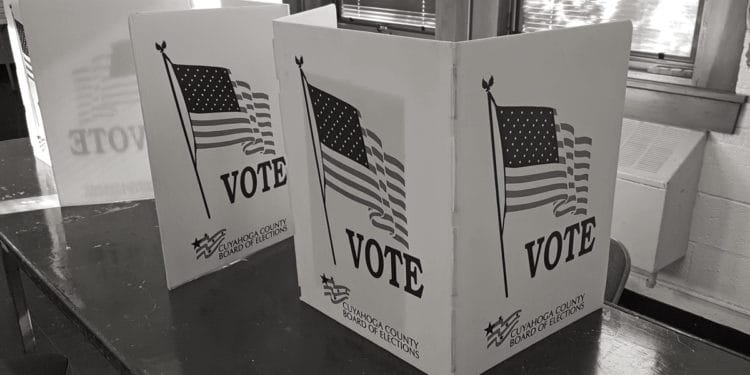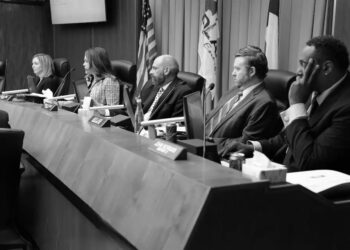Electoral reform is an ever more polarized topic these days, but the reform known as ranked‐choice voting, which has been making inroads lately, deserves the attention it’s been getting across party lines.
New York City voters will use RCV in the upcoming mayoral election — candidate Andrew Yang, for one, has sung its praises — while the Virginia GOP will used the method in May in picking candidates for statewide office. Utah Republicans, who’ve done the same in the past, have a good explainer here on how it works. Together with many large cities, the states of Maine and more recently Alaska have adopted the reform — it was in use in this past November’s Maine Senate race, in which incumbent Sen. Susan Collins (R) breezed to re‐election by an unexpectedly wide margin.
For those just tuning in, RCV allows you the voter to mark not only your first choice among candidates, as now, but a second, third choice and so on. Once votes are cast candidates are eliminated beginning with the least popular and their supporters redistributed per their ranked choices to remaining candidates. This continues until one candidate exceeds 50 percent of the active ballots. While novel in America, the practice is familiar and of long standing in countries like Australia and Ireland.
Economists have long tended to appreciate ranked‐choice voting because it offers a way to capture and integrate into decision‐making much richer information about voter preferences. Importantly, it reduces the chance that a candidate with a committed base but who lacks appeal to most voters will slip through in a crowded field. And it reduces if not eliminates the role of “spoiler” candidates, often encountered in today’s first‐past‐the‐post system.
It also should hold a lot of attraction, I believe, for those of us with libertarian views. It allows casting a conscience vote for the long‐shot candidate who is genuinely best without throwing away the chance to influence the ultimate decision. Moreover, libertarians tend to be aware that the so‐called political spectrum does a poor job of capturing important facts about candidates; the ones we recognize as best (or worst) on matters of liberty and the rule of law do not necessarily line up neatly along a party spectrum. For libertarians, as for other groups, RCV respects and incorporates the complexity of actual voter preferences.
It allows casting a conscience vote for the long‐shot candidate who is genuinely best without throwing away the chance to influence the ultimate decision.
Local election administrators and campaigners can also find practical advantages in the reform. Often called “instant runoff voting,” RCV offers a streamlined, speedier alternative to the cumbersome and expensive scheduling of a runoff election weeks later, as was seen lately in the twin Georgia Senate races.
For all these reasons I’ve recently joined the advisory board of Rank the Vote, a nonpartisan group that aims to stir interest and discussion in this method of voting. I expect to post more in the future on some of the other effects RCV may have, such as changing the manner in which candidates campaign, and altering the role third parties may play in the electoral system.
Note from Better Cities Project: NYC adopted RCV after a 2019 local ballot measure was passed to allow for it. The method for voting that is used in each election cycle depends on local and/or state regulations. Additionally, in some states, parties can decide on what method of voting they’d like to use in their party primaries.









